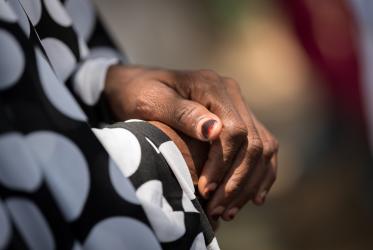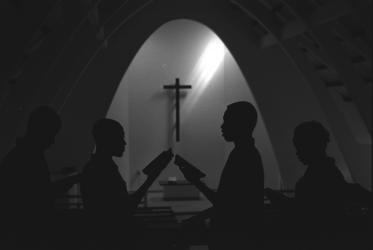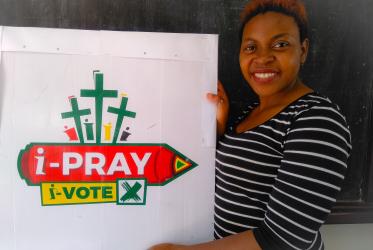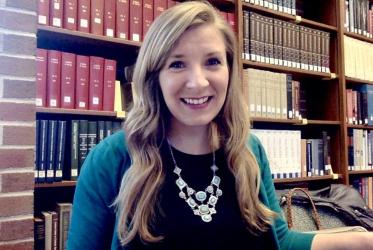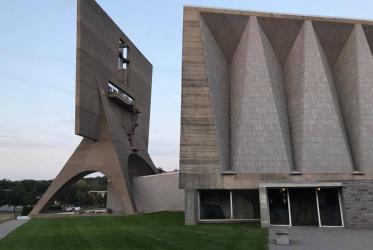Displaying 1 - 20 of 28
A plea from Cameroon: “Take up our case to God”
25 February 2020
Paving the way for ecumenical studies, learning English in Bossey
24 September 2018
Praying and voting goes together
11 July 2018
Film recognized for highlighting human rights in DRC
18 April 2018
Faces of Hope raises awareness
07 March 2018
Walking together against hatred and violence
26 February 2018
Tveit: search for unity “an urgent need today”
09 September 2017
"We have our work cut out for us"
10 August 2017
Nigerian breaks down stereotypes on Muslims
13 July 2017



